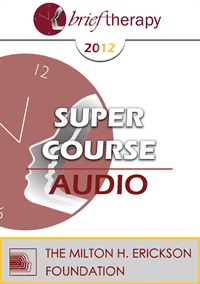BT12 Super Course 02 – Passion, Vitality and Intimacy: Integrating Attachment, Differentiation and Neuroscience – Ellyn Bader, PhD
- Average Rating:
- Not yet rated
- Topic Areas:
- Attachment | Neuroscience | Super Courses | Intimacy | Differentiation | Couples Therapy
- Categories:
- Brief Therapy Conference | Brief Therapy Conference 2012 | Pioneers in Couples and Family Therapy
- Faculty:
- Ellyn Bader, PhD
- Duration:
- 1:51:57
- Format:
- Audio Only
- Original Program Date:
- Dec 09, 2012
- License:
- Never Expires.
Description
Description: Learn advanced techniques for understanding relationship dynamics, addressing communication challenges, and supporting couples through complex emotional landscapes. Explore attachment styles, therapeutic interventions, and strategies for helping couples navigate conflict, addiction, and personal growth.
Syllabus Description: Many partners crave intimacy or demand it, yet they fear the involvement that makes intimacy possible. Learn to use attachment theory, differentiation theory and neuroscience principles to lead your couples out of pain. Create sustained change with challenging issues such as infidelity, ongoing hostility, narcissism and pervasive conflict avoidance. Videotapes and clinical case examples will be used throughout the workshop.
Educational Objectives:
- Integrate core principles from attachment theory, differentiation theory and neuroscience into couples therapy.
- Recognize 5 ineffective coping strategies partner’s use and uncover underlying vulnerability.
- Use a 4 step process for rapidly repairing relationship ruptures.
- Review the developmental sequence by which empathy develops.
- Intervene in common communication patterns that invite distance, lies and betrayal.
- Understand the role of the limbic system in inhibiting relationship growth.
*Sessions may be edited for content and to preserve confidentiality*
Credits
Handouts
| Timestamped Transcript (1.2 MB) | 31 Pages | Available after Purchase |
Faculty

Ellyn Bader, PhD Related Seminars and Products
Ellyn Bader, PhD, is a founder and director of The Couples Institute in Menlo Park, California. As a clinical psychologist, workshop leader, author, and speaker, she is dedicated to helping couples create extraordinary relationships. Over the past 30 years she has trained therapists in couples therapy throughout the United States as well as Europe, Asia, South America, and Australia. She served as a Clinical Faculty in Stanford University School of Medicine for 8 years.


